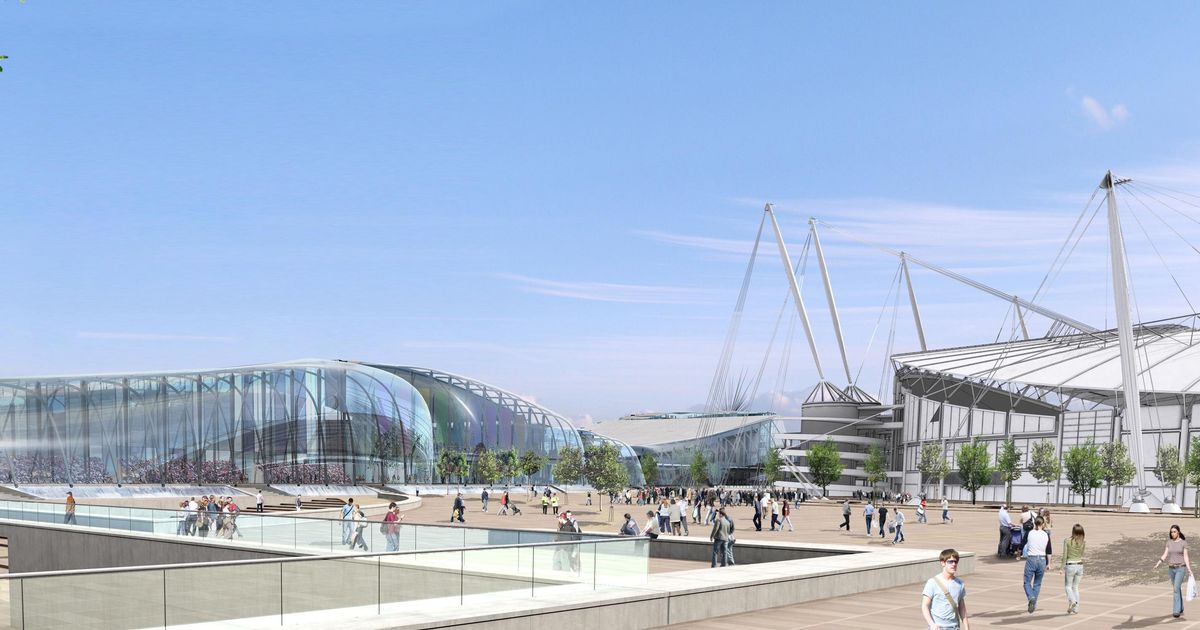Blackpool were the front runners and bookies’ favourites… but then the unthinkable happened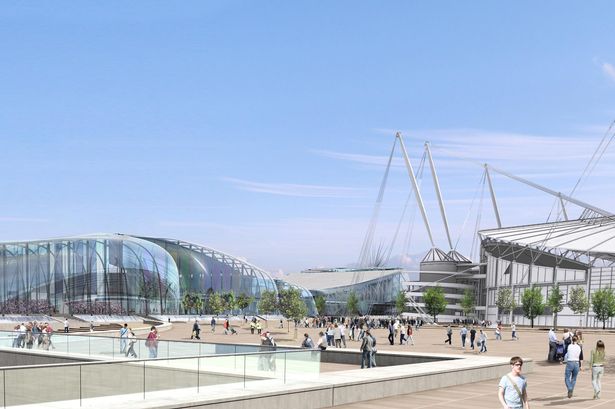 The proposed leisure and entertainment complex at Sportcity, Manchester, included a super casino
The proposed leisure and entertainment complex at Sportcity, Manchester, included a super casino
The government’s choice of Manchester as the destination for the country’s first super casino left Blackpool bigwigs livid, with faces redder than those found on a saucy postcard.
In a surprise decision in 2007, Tony Blair’s government announced Manchester as the preferred city to host the country’s first Las Vegas-style super casino. The decision came as a total shock to Blackpool, the front runners and bookies’ favourite, to be chosen as the destination for a new era in gambling.
Manchester and Blackpool weren’t the only two in contention. London, Cardiff, Newcastle, Sheffield, and Glasgow were all vying to be the new mecca for big-money gambling.
So when the news Manchester was awarded the decision came it landed like a punch to the gut to the seaside town, as Blackpool’s community leaders reacted with disappointment and even fury at the Labour government’s decision. Steve Weaver, Chief Executive of Blackpool Council, told the Lancashire Telegraph: “We are surprised and hugely disappointed by the panel’s recommendation, but we are not giving up.
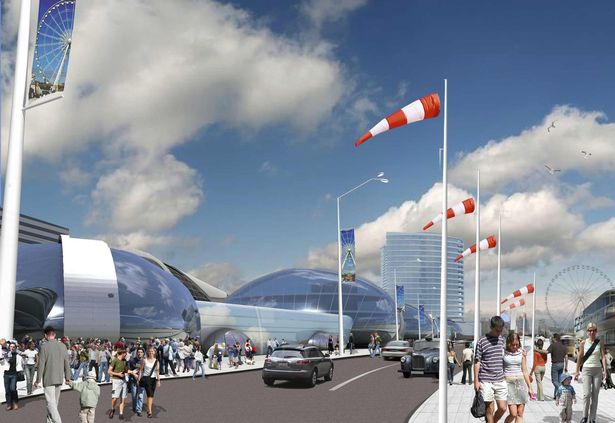 Blackpool’s failed conference leisure centre and super casino plans
Blackpool’s failed conference leisure centre and super casino plans
“The decision that the panel is proposing is an enormous missed opportunity for Blackpool to become a world-class resort destination.
“A regional casino would be a catalyst for substantial change in Blackpool.
“We are also the people’s choice nationally having received well over twice as much support nationally as any other location.”
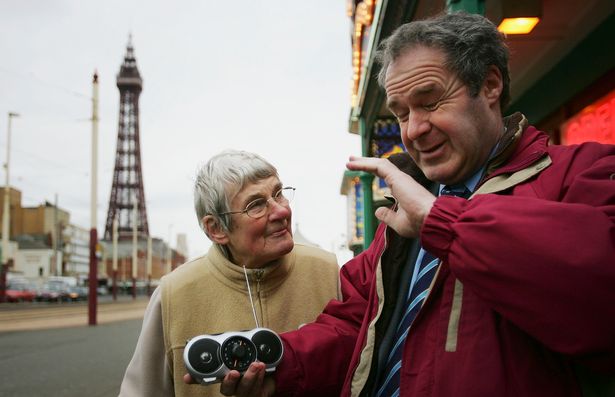 Disappointed Blackpool residents listen to the radio as Manchester is declared the site of the new UK. January 30, 2007
Disappointed Blackpool residents listen to the radio as Manchester is declared the site of the new UK. January 30, 2007
Allan Matthews, then Blackpool’s mayor, reacted furiously to the decision, accusing Manchester of not even needing the casino while the Lancashire tourist town was banking on it.
Mr Matthews said: “I’m very angry Manchester has been chosen. It can look elsewhere for regeneration, but we cannot – tourism is all we have.
“Does Manchester want our sea, and our tower? It might as well have it all. “It’s like nailing the coffin lid down on Blackpool. The decision to put it in Manchester is the worst of all scenarios.
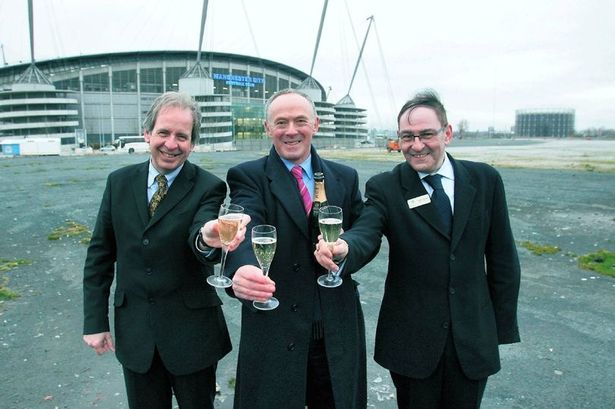 Tom Russell, then chief executive of New East Manchester; Richard Leese, leader of Manchester city council; and the then council chief executive Howard Bernstein pictured in 2007 on the site next to the City of Manchester Stadium where the supercasino was due to be built(Image: MEN MEDIA)
Tom Russell, then chief executive of New East Manchester; Richard Leese, leader of Manchester city council; and the then council chief executive Howard Bernstein pictured in 2007 on the site next to the City of Manchester Stadium where the supercasino was due to be built(Image: MEN MEDIA)
“I’ve spoken to a lot of Lancashire mayors and they back Blackpool – it is well loved by everyone in this county and nationwide. And they want it to succeed.”
Nevertheless, the decision was welcomed by many in the city, with estimates it would bring around 3,000 jobs to East Manchester. So what was planned?
What is a super casino? The proposed site of Manchester’s super casino back in 2007
The proposed site of Manchester’s super casino back in 2007
The Gambling Act 2005 revised gambling regulations in England. Among the more controversial changes was the establishment of several ‘destination casinos’ in the style of Las Vegas, referred to as ‘super casinos’.
Before the 2005 act, the largest casino in the country was Star City in Birmingham, with a floor area of around 950 square metres. Customers were also required to register 24 hours before gaming.
Manchester’s winning bid envisioned a ‘gambling palace’ with an arena, sports complex, restaurant, nightclub, hotel, and new housing being built near the Etihad Stadium. Another key part of the plan was to introduce gaming machines with unlimited pay-outs.
The super casino was set to be absolutely huge—at least 5,000 square metres—with 40 or more gaming tables and 1,250 gaming machines, some paying massive prizes, perhaps even £1m if linked to big-money machines elsewhere.
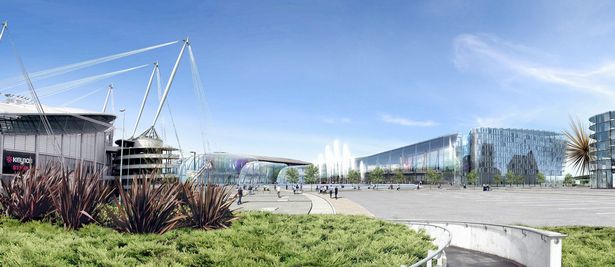 Plans for how East Manchester’s super casino could have looked
Plans for how East Manchester’s super casino could have looked
There were also plans for new large casinos across the country, which would have up to 150 gaming machines, and small casinos with up to 80 machines and prizes up to £4,000. The region was also expected to benefit from a significant boost to the local economy had the super casino plans gone ahead.
For many living in the area, the reaction to the planned casino was largely positive, but there were some reservations about the effect of such a prominent gambling facility in the area. Speaking with the MEN in 2007, Edward Jones, 60, who worked at Johnson and Nephew wireworks before it was demolished and had lived in Beswick with his wife, Susan, for 35 years, said he supported the plans.
He told the MEN: “The regeneration has been a lifeline for this area. I can see why people are not happy about a casino being built here, but it’s all about jobs at the end of the day. That has to be the biggest factor in deciding whether it’s a good thing or not.”
 The plans for the super casino in east Manchester
The plans for the super casino in east Manchester
Lynn Robinson, also from Beswick, said her neighbours were “delighted” at the win. The 50-year-old, who worked at the Manchester Royal Infirmary, said: “If all the additional benefits come with the casino it will be great.
“We’ve heard there will be a skating rink and cafes, and if we get those kinds of things as well, we’ll be happy. There are problems here at the moment, but I can’t see the casino bringing any more – it can only make things better.”
But there were those who opposed the super casino plans. Mian Riaz, 60, from Gorton, said: “People should not be spending money they do not have in casinos. We already have a lovely stadium and this will do nothing for the image of the place.”
Why did it fail?
A change in Prime Minister threw the casino plans into chaos. The plans had been backed by the House of Commons but rejected by the Lords by just three votes, something then Prime Minister Tony Blair vowed to ‘put right’.
But then Gordon Brown took over at No 10 and announced a review – led by Communities Secretary and Salford MP Hazel Blears – on whether there are better ways of regenerating east Manchester.
Brown was known to be no fan of a major extension of gambling facilities in the country and had already been suspected to be in opposition to the idea by the time he became Prime Minister.
In January 2008, it was confirmed that plans for the huge, Las Vegas style super casino would be scrapped. According to the BBC, then culture secretary and now Mayor of Greater Manchester, Andy Burnham, said that instead, plans for 16 smaller casinos will go ahead in towns including Leeds, Milton Keynes, Swansea and Stranraer.
Announcing the U-turn, Mr Burnham told MPs there was “no consensus” on whether to build a super casino and said concerns had been expressed over its potential negative impact.
He added there were “important differences” between a super casino with 1,250 unlimited stake and jackpot machines, and the plans for new smaller casinos that were still considerably larger than current casinos.
Following the decision, former Prime Minister Tony Blair launched an attack on Gordon Brown’s decision to scrap plans for the super casino in Manchester, branding the decision “the worst form of puritanism”.
In his controversial biography written following a well publicised rift between Tony Blair and Gordon Brown while they were both still in Government, Blair said his successor’s decision to ditch the project, which would have created 3,500 jobs in the deprived east of the city, was a ‘partisan’ and ‘ineffectual’ gesture under pressure from the church and right-wing press.
Join the Manchester Evening News WhatsApp group HERE
